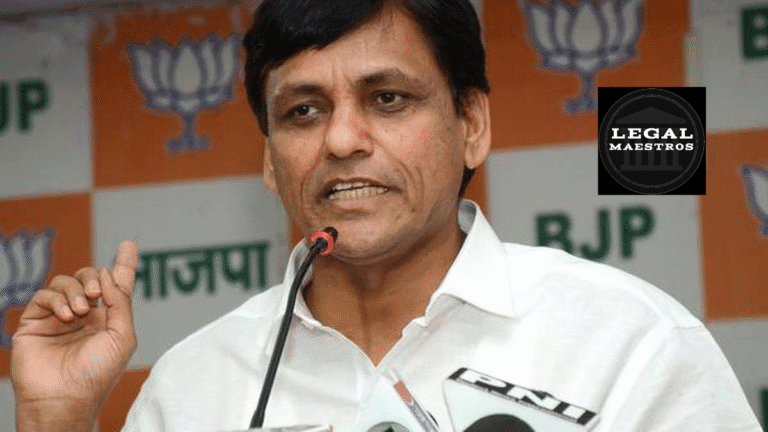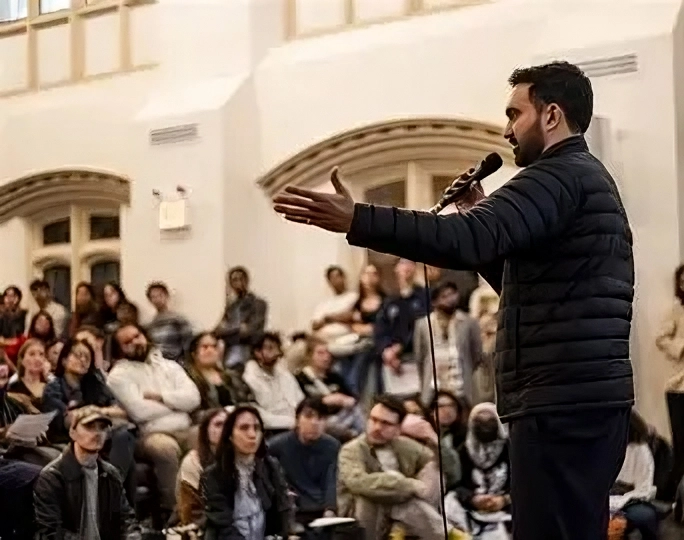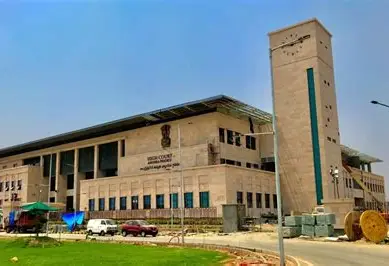
Can the Supreme Court Strike Down the Waqf Amendment Act? A Constitutional Analysis of Religious and Property Rights
The Waqf Amendment Act has caused widespread controversy throughout India. The legislation, which aims to reform the administration and management of waqf properties, has raised significant questions regarding the interplay between religious freedom and property rights. Most people are asking whether the Supreme Court can invalidate the Act in case it conflicts with the Constitution. This article discusses the constitutional issues surrounding the Waqf Amendment Act, describes the nature of waqf properties, and discusses the role of the Supreme Court in upholding religious and property rights in India.
Understanding the Waqf Amendment Act
The Waqf Amendment Act was brought in to make changes in the management of waqf properties, which are charitable endowments created under Islamic law. The Act was brought in to deal with issues of transparency, accountability, and efficient management of these properties. Historically, waqf properties have been governed by state-run boards and committees. The Amendment Act looks to modernize the management techniques and align them with contemporary administration standards while taking care that the properties are employed in the charitable cause for which they were constituted.
The proponents of the Amendment Act posit that these amendments will bring modernity to waqf property management, avoid abuse, and ensure equitable distribution of the benefits of waqf to those who need it. Opponents, on the other hand, argue that the reforms may infringe on the traditional autonomy of religious communities. They fear that the amendments will result in too much state interference in religious endowments and compromise the religious rights of the communities that have created these waqfs.
For More Updates & Regular Notes Join Our Whats App Group (https://chat.whatsapp.com/DkucckgAEJbCtXwXr2yIt0) and Telegram Group ( https://t.me/legalmaestroeducators ) contact@legalmaestros.com.
Constitutional Provisions and the Role of the Supreme Court
Both religious freedom and property rights are well-protected under the Indian Constitution. Articles of the Constitution, like Article 25, secure freedom of religion, while others safeguard the right to property. While the right to property is no longer a fundamental right following constitutional changes at the start of the 1970s, it is still a significant legal and political cause. When such a law as the Waqf Amendment Act is challenged, the duty of the Supreme Court is to ensure that it does not infringe these constitutional assurances.
The Supreme Court of India has had an authoritative role to play in the constitutional jurisprudence of the nation, particularly in cases pertaining to minority rights as well as property rights. The Court has the authority to review laws passed by Parliament and strike them down if they are found to be in violation of the Constitution. This power of judicial review is central to the system of checks and balances that helps maintain the rule of law. For example, in the Waqf Amendment Act, if any clause of the Act is challenged on the grounds that it is unconstitutional, the Supreme Court would judge the arguments by the Constitution’s promises of secularism, equality, and freedom of religion.
Balancing Religious Freedom and State Control
One of the key constitutional concerns in the controversy surrounding the Waqf Amendment Act is the balance between religious freedom and state control of religious institutions. The Indian Constitution ensures that all citizens are entitled to follow and spread their religion. The right is not absolute, though, and may face reasonable restrictions. The State has the right to control things of public concern, such as administering religious endowments, if it can prove its control to be grounds of public welfare, accountability, and transparency.
The Waqf Amendment Act seeks to bring in provisions that some consider essential to enhance the management of waqf properties. These provisions involve greater control by state authorities, improved documentation of waqf assets, and more stringent regulations on property management. The argument is that such reforms are in the public interest because they seek to prevent corruption and ensure that waqf properties are utilized for their intended charitable objectives.
However, critics contend that this state intervention might be an excess that violates the historical rights of religious communities to govern themselves. They are apprehensive that undue state control could result in choices that do not honor the religious feelings of the concerned communities. This conflict between state intervention and religious autonomy is a long-standing problem in constitutional law. The Supreme Court has already met similar conflicts by harmonizing the demands of public accountability with deference to religious freedom.
Property Rights and the Waqf System
The Waqf properties enjoy a privileged place in the Indian legal system. Not only are these properties utilized for religious ends but also for rendering social services, including endowing schools, hospitals, and community centers. The past administration of these properties has usually been marked by a mix of religious custom and state bureaucracy. The difficulty for the Waqf Amendment Act is to modernize the system without shattering the established trust between the religious community and the administration of its endowments.
The question of property rights under the Waqf Amendment Act has been surrounded by questions of whether the State’s growing intervention could result in possible mismanagement or even the inappropriate distribution of property. Some jurists believe that greater transparency and regulation under the Amendment Act could prove to safeguard the interests of the waqf properties as well as the beneficiaries. They refer to instances of mismanagement and corruption in the administration of waqf that have resulted in heavy losses to public property. Others are concerned that the Act may establish a precedent for increased state intervention in religion that could erode century-long traditions that have regulated waqf management.
Legal Challenges and Judicial Review
If the Waqf Amendment Act were to be challenged in court, the case would center on a few major constitutional issues. The primary issue would be whether the provisions of the Act enhancing state control over waqf properties contravene the Constitution’s promise of religious freedom. Challengers may also contend that the Act intrudes upon the property rights of the communities that created these endowments.
Upon considering such challenges, the Supreme Court would take into account several factors. First, the Court would consider the legislative purpose behind the Amendment Act. This entails knowing whether measures were intended to safeguard public interest by providing transparency and accountability or whether they amount to an excessive interference into religious autonomy. The Court would further review previous case law in which analogous issues were addressed. Throughout the years, the Supreme Court has built a body of jurisprudence regarding religious freedom and state intervention limits. In most instances, the Court has held that although the state may regulate religious institutions in the interest of public order and good governance, this regulation must be balanced and cannot erode the fundamental religious practices and traditions of the community.
The second key factor the Supreme Court would examine is proportionality in the actions of the state. The Court has typically employed a test of proportionality to decide if a specific regulation or law is reasonable. It involves examining if the advantages of the law outbalance the limits it places on individual rights. In the case of the Waqf Amendment Act, the Court would have to decide whether the enhanced state intervention is a proportionate reaction to the problems of mismanagement and corruption in waqf administration, or if it is an excessive interference in the affairs of religious communities.
The Role of the Legislature and Democratic Processes
The controversy surrounding the Waqf Amendment Act is not merely a legal question but also a political question. The legislature has passed the Act, which reflects the people’s democratic will. The role of the Supreme Court is to see that laws passed by the legislature are within the parameters of the Constitution. When the Supreme Court invalidates a law, it is not political interference but a necessary action in upholding the constitutional order. Judicial review power is the bedrock of Indian democracy and has been employed time and again to rectify legislative excesses.
It is contended by some critics that if the Supreme Court nullifies the Waqf Amendment Act, it would be undermining the democratic process by overriding the elected representatives’ will. Nevertheless, it should be kept in mind that the Constitution is the highest law of the land. The judiciary’s responsibility is to ensure that all laws, whether they are legislative or executive, comply with constitutional principles. The judicial review process is not intended to be an impediment to democracy but rather a protection against abuse of power and the violation of basic rights.
Insights from Legal Scholars and Experts
Legal scholars have presented varying arguments on whether or not the Supreme Court should have the authority to invalidate the Waqf Amendment Act. Certain scholars argue that the Act is a much-needed development in waqf property management, guaranteeing that public property is administered with transparency and accountability. According to them, the Supreme Court would be within its rights to uphold the Act if it can be established that the state intervention is reasonable and in the interest of the public.
Other scholars, nonetheless, warn that the Act has the potential to create a perilous precedent of state intervention in religion. They also emphasize the necessity to defend religious communities’ autonomy, citing that any legislative intervention that intrudes on conventional religious practice must be strictly scrutinized by the judiciary. These analysts identify that the history surrounding waqf property is extremely inextricable with religious tradition, and making a move to alter the proportions would best be achieved cautiously.
Recent Judicial Trends and Precedents
The latest decisions from the Supreme Court have helped unveil the potentialities of the way the judiciary can respond to the Waqf Amendment Act. In a number of religious freedom and property rights cases, the Court has been seen to be prepared to examine apparently overreaching legislation. As, for instance, in adjudications regarding management of religious trusts and minority groups’ rights, the Court has stressed legislative initiatives must be open and proportionate. These precedents show that while the Supreme Court appreciates the requirement of reform in fields such as waqf administration, it is also committed to ensuring that any reforms are not at the expense of constitutional rights.
The judicial trend has been to reconcile the necessity for effective state regulation with the protection of individual and community rights. In so doing, the Court has frequently depended on a close examination of the historical, social, and legal background of the matters before it. This balanced approach is likely to be followed in any case concerning the Waqf Amendment Act. The result of such a case would be determined by whether the Court believes the state’s actions are justified through the need for enhanced management and transparency or if they amount to an overreach that encroaches on the essential principles of religious freedom and property rights.






